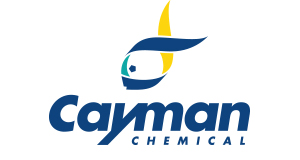PTK7 Extracellular Domain (human, recombinant)
PTK7 Extracellular Domain (human, recombinant)
SKU
CAY40523-1
Packaging Unit
1 mg
Manufacturer
Cayman Chemical
Availability:
loading...
Price is loading...
Formulation: Lyophilized from sterile PBS, pH 7.4
Purity: ≥95% estimated by SDS-PAGE
Formula Weight: 0
Shelf life (days): 365
Notes: Inactive tyrosine-protein kinase 7 (PTK7) is a transmembrane receptor involved in morphogenesis.{72288} It is composed of a signal peptide, seven immunoglobulin-like (Ig-like) domains, a transmembrane domain, a juxtamembrane domain, and a catalytically inactive tyrosine kinase domain.{72289} PTK7 is expressed in pancreas, kidney, liver, lung, and placenta, as well as brain, heart, and melanocytes, and localizes to cell-cell junctions.{72290,72291} It also undergoes alternative splicing to generate isoforms that exhibit tissue-specific distributions.{72289} Soluble PTK7 is produced by proteolytic cleavage of the extracellular domain by matrix metalloproteinase-14 (MMP-14), also known as membrane type-1 MMP (MT1-MMP).{72291} PTK7 plays a role in planar cell polarity, gastrulation, neural tube closure, neural crest migration, cardiac morphogenesis, and epidermal wound repair and participates in canonical and non-canonical Wnt signaling.{72288} Ectopic expression of PTK7 without the kinase domain induces migration of murine hematopoietic cells expressing the human protein and recombinant human soluble PTK7 inhibits VEGF-induced capillary tube formation in human umbilical vein endothelial cells (HUVECs).{72292,72293} A PTK7-targeting antibody-drug conjugate containing the DNA topoisomerase I inhibitor exatecan (Item No. 35452) induces tumor regression in a breast cancer mouse xenograft model.{72294} Overexpression of PTK7 is associated with poor prognosis in patients with acute myeloid leukemia (AML).{72292} Cayman’s PTK7 Extracellular Domain (human, recombinant) protein consists of 685 amino acids, has a calculated molecular weight of 76.1 kDa, and a predicted N-terminus of Ala31 after signal peptide cleavage. By SDS-PAGE, under reducing conditions, the apparent molecular mass of the protein is 86.7 kDa due to glycosylation.
Purity: ≥95% estimated by SDS-PAGE
Formula Weight: 0
Shelf life (days): 365
Notes: Inactive tyrosine-protein kinase 7 (PTK7) is a transmembrane receptor involved in morphogenesis.{72288} It is composed of a signal peptide, seven immunoglobulin-like (Ig-like) domains, a transmembrane domain, a juxtamembrane domain, and a catalytically inactive tyrosine kinase domain.{72289} PTK7 is expressed in pancreas, kidney, liver, lung, and placenta, as well as brain, heart, and melanocytes, and localizes to cell-cell junctions.{72290,72291} It also undergoes alternative splicing to generate isoforms that exhibit tissue-specific distributions.{72289} Soluble PTK7 is produced by proteolytic cleavage of the extracellular domain by matrix metalloproteinase-14 (MMP-14), also known as membrane type-1 MMP (MT1-MMP).{72291} PTK7 plays a role in planar cell polarity, gastrulation, neural tube closure, neural crest migration, cardiac morphogenesis, and epidermal wound repair and participates in canonical and non-canonical Wnt signaling.{72288} Ectopic expression of PTK7 without the kinase domain induces migration of murine hematopoietic cells expressing the human protein and recombinant human soluble PTK7 inhibits VEGF-induced capillary tube formation in human umbilical vein endothelial cells (HUVECs).{72292,72293} A PTK7-targeting antibody-drug conjugate containing the DNA topoisomerase I inhibitor exatecan (Item No. 35452) induces tumor regression in a breast cancer mouse xenograft model.{72294} Overexpression of PTK7 is associated with poor prognosis in patients with acute myeloid leukemia (AML).{72292} Cayman’s PTK7 Extracellular Domain (human, recombinant) protein consists of 685 amino acids, has a calculated molecular weight of 76.1 kDa, and a predicted N-terminus of Ala31 after signal peptide cleavage. By SDS-PAGE, under reducing conditions, the apparent molecular mass of the protein is 86.7 kDa due to glycosylation.
| SKU | CAY40523-1 |
|---|---|
| Manufacturer | Cayman Chemical |
| Manufacturer SKU | 40523-1 |
| Package Unit | 1 mg |
| Quantity Unit | STK |
| Product information (PDF) | Download |
| MSDS (PDF) |
|

 Deutsch
Deutsch










